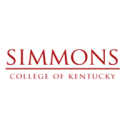 Andrew W. Campbell, an associate professor of biology at Brown University in Providence, Rhode Island, is the senior author of a study that examines the reasons for the small number of Black and other minority students who graduate with degrees in STEM fields. The main thesis of the study is that efforts to get more minority students in STEM fields have been successful but far less is being done to help them succeed.
Andrew W. Campbell, an associate professor of biology at Brown University in Providence, Rhode Island, is the senior author of a study that examines the reasons for the small number of Black and other minority students who graduate with degrees in STEM fields. The main thesis of the study is that efforts to get more minority students in STEM fields have been successful but far less is being done to help them succeed.
“The pipeline we’ve laid? We’re stuffing it but the yield is less than we expect,” notes Dr. Campbell. His data shows that about one third of both White and Black and other minority students intend to major in a STEM discipline when they enter college. But only 18.5 percent of minority students graduate with a major in a STEM field. Also, only 30 percent of minority students with a bachelor’s degree in a STEM field get a STEM-related job or enter a STEM graduate program.
Dr. Campbell and his co-author postdoctoral fellow Stacy-Ann Allen Ramdial, recommend four strategies to increase Black and other minority students in STEM fields: alignment of culture and climate, partnerships between research universities and HBCUs and other minority-serving institutions, critical masses of minority students, and faculty engagement in diversity.
Dr. Campbell is a graduate of York College of the City University of New York. He holds a master’s degree and a Ph.D. in biology from the University of California, Los Angeles.
The study, “Reimagining the Pipeline: Advancing STEM Diversity, Persistence, and Success,” was published in the July issue of the journal BioScience. It may be accessed here.











Having a son who has been an honor student throughout his entire educational life and now has a ( BS ) Applied Mathematics Degree. Graduating Cumulate in 2011. Is still having a problem finding a entry level job in his field. Why should young blacks do the hard work necessary and invest the money on a degree that just leaves them in debt and afraid to invest any more money into getting a Masters Degree and acquiring more debt to just be denied an opportunity?
Most of the STEM disciplines require a graduate degree to accent their undergraduate degree. That goes for all that have attained them. He should definitely start weighing in on where he wants to continue his education before too much time has lapsed.
my husband and I started an elementary/middle school in Corona Queens, New York in 1996. Elementary school is the foundation to higher learning (i.e. high school and college). While this is true, there are very little if any resources to support the cost of low income, culturally diverse families. Our school is tuition based and we certainly are struggling. We do not dismiss families for their inability to pay, yet we are very successful in teaching students who have been labeled as slow learners, low performing etc. This school term we have transitioned our school to a STEM-Arts School by changing our name to that. Under the former name we were already doing this. In addition to what we already offer, we are working on a new sustainability and energy program that will be taught to grades 5-9. Starting here will help and encourage students to entertain and follow through on what you discussed in your article. Middle school level will prep them for interest in high school and so on. Hopefully we will be able to keep our doors open and continue on our task.